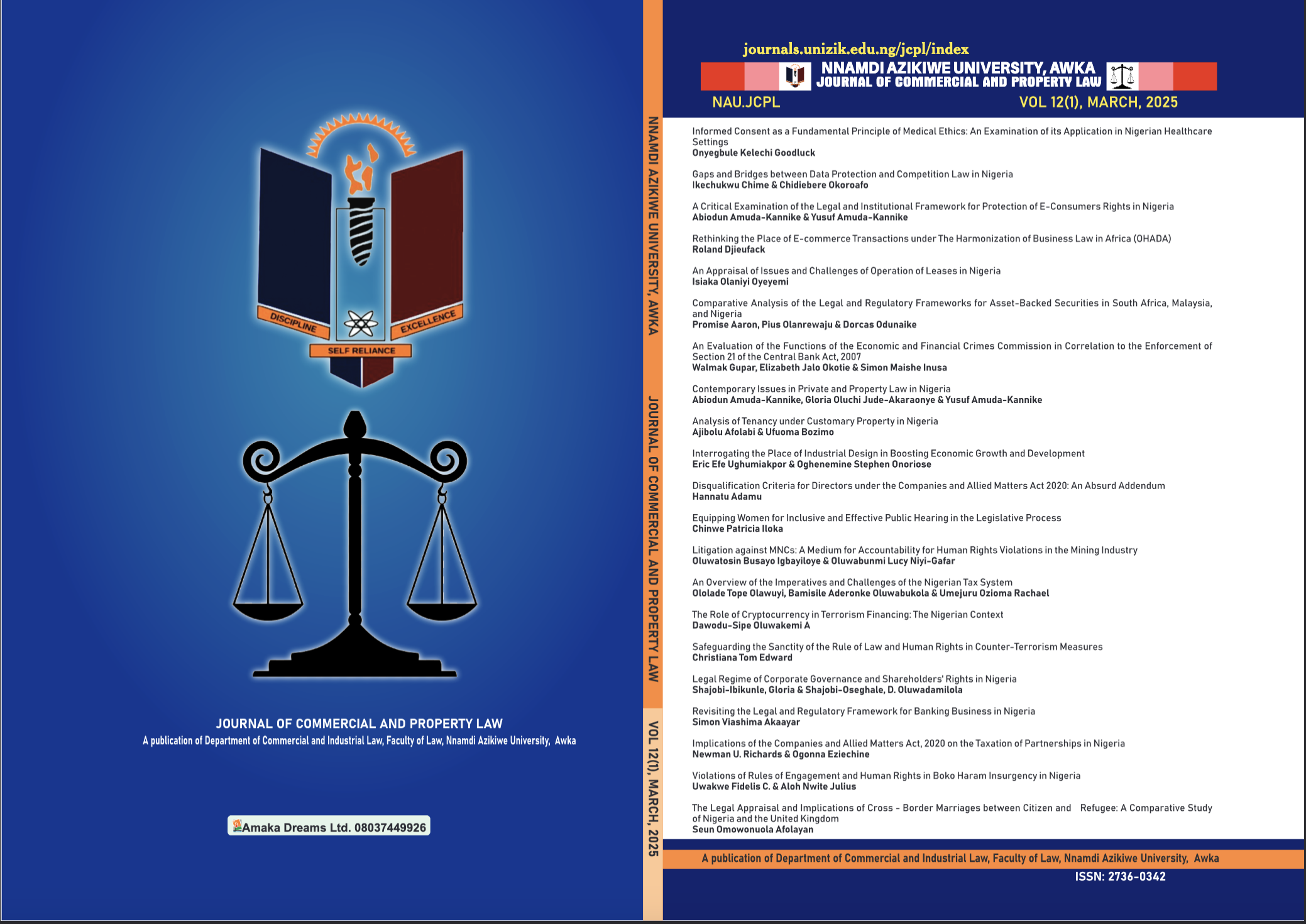Informed Consent as a Fundamental Principle of Medical Ethics: An Examination of itsApplication in Nigerian Healthcare Settings
Keywords:
Informed Consent, Healthcare, Medical EthicsAbstract
The patient's right of consent to any medical treatment recommended by a medical practitioner is now
internationally recognised. This consent is required by the premise of the individual's inviolable right
to choose and control his own health-care situations. Consent must be free, prior, and informed. Free
indicates that permission is invalid if obtained through manipulation or coercion. Consent gained
unwillingly, under duress or coercion, may result in a battery lawsuit. The consent must be granted
voluntarily by a patient who has capacity to so do. Prior means that consent must be obtained adequately
in advance of any authorisation granted by medical or hospital authorities, or the initiation of hospital
activities that influence the patient's health. Informed means that the patient's agreement must be
obtained only after complete and legally accurate disclosure of information about the proposed medical
operation. The disclosure must be in a form that is both accessible and clear to the patient, including
the nature, scope, duration, potential hazards, and foreseeable consequences of the medical operation.
There must be complete disclosure of information about the treatment, benefit, danger, complications,
and repercussions of such a procedure. Regarding a procedure or therapy that needs to be administered
to the patient, the doctor gives all the information that is required. In Nigeria, the idea of informed,
prior, and free consent is not widely recognized in the medical field. This is caused by multiple variables.
First, there is the issue of Nigeria's low literacy rate. Patients with limited literacy typically depend
solely on the doctor's judgement. The second factor is the lack of enforcement of the right to informed
consent. Under Nigerian law, patients whose rights to informed consent have been violated have little
recourse options. Bureaucracy also hinders the processes that are in place to enforce the right to
informed consent. This article makes the case that the legal and institutional regimes for Nigeria’s
informed consent laws are insufficient.

